Keeping Cows Cool in The Summer Heat
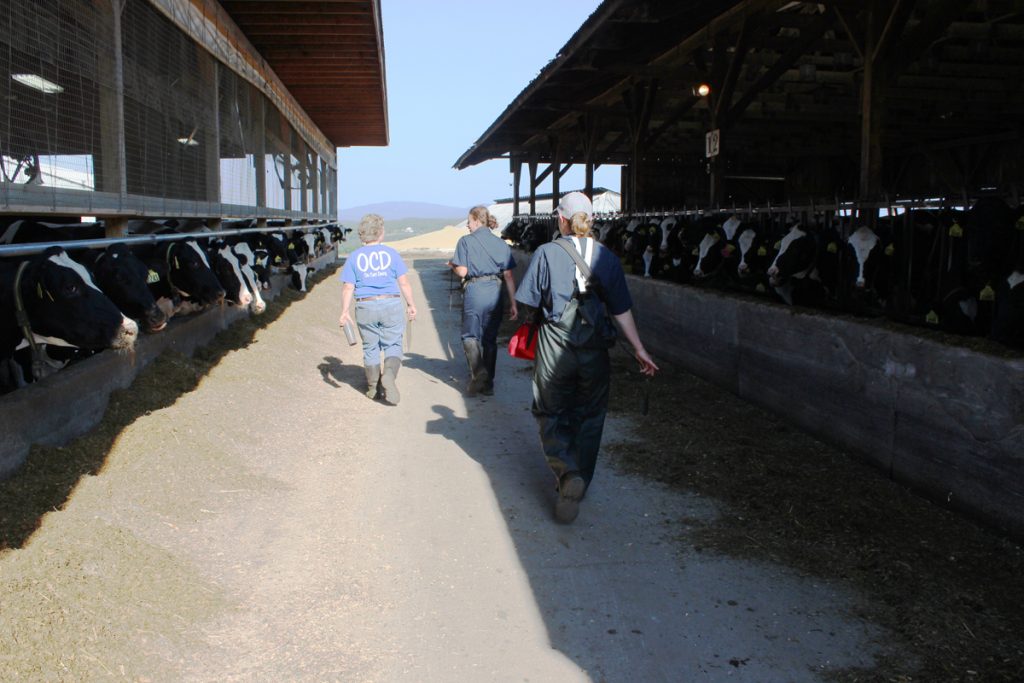
If a cow could speak, a dairy farmer would probably ask her 20 questions a day, at least, like:
- How are you today? Feeling all right?
- Can I get you anything?
- Is the temperature right for you?
- Do you need me to turn up the fans?
- Can I get you anything?
- How’s the food today?
- Have you been drinking enough water?
- Are you comfortable?
- Are the bedding and stalls to your liking?
- Can I get you anything? A cup of tea, perhaps?
Well, that last one might be a bit overboard, but you get the idea. Because cows don’t speak, not our language anyway, dairy farmers rely on research, technology, the advice of veterinarians, cow nutritionists, and their own observations to determine what a cow likes, dislikes, needs for proper nutrition, suitable housing, and if she’s feeling all right at any given point.
At no time are those things more important than at the peak of summer heat. If you’ve ever been in a dairy cow barn in summer, you’ll know it’s one of the coolest places to be because of the temperature and you get to hang out with cows.
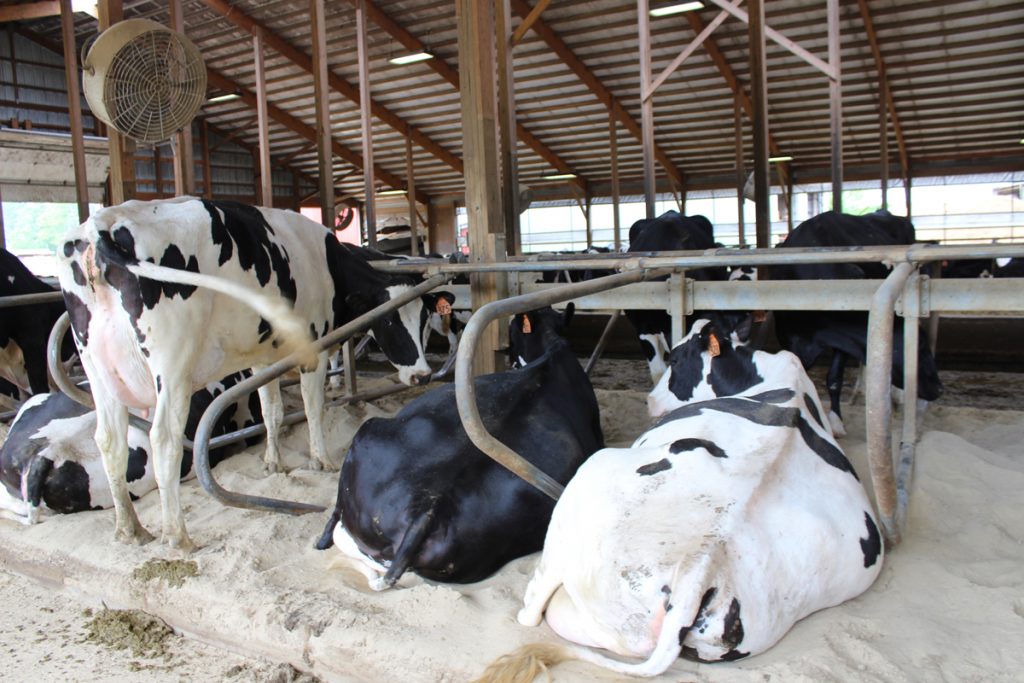
Cows prefer jeans-and-hoodie weather or even snow pants-and-parka weather to beach weather. These sensitive creatures’ health can be thrown out of whack if stress is introduced. Their milk production can drop.
Their complex digestive systems can go haywire. It can also add excessive stress to a pregnant cow. Fortunately, we have found ways to keep cows healthy and comfortable, even when the heat and humidity start to rise.
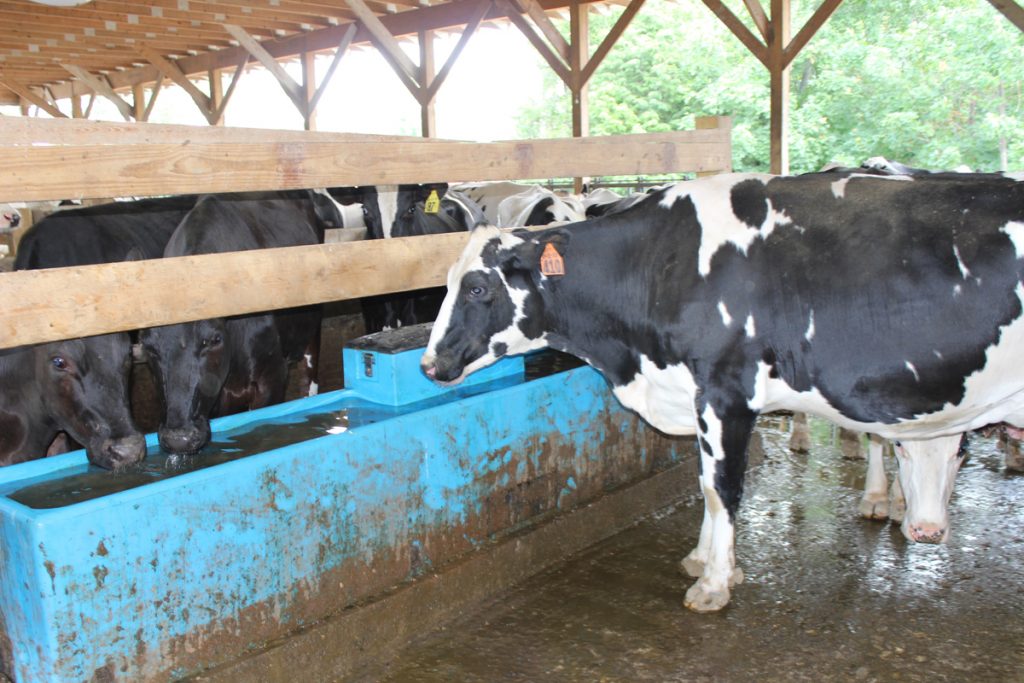
Checking that fans are running and shades are in place to block out the sun if needed. Water tanks must be clean and in working order. Some dairy farms offer salt licks for their animals, while most include trace minerals in the animals’ feed.
“You want to encourage water intake,” she said, “There’s some nutrition shifting that is seasonal.”
Dairy farmers work with a nutritionist to adjust feed often. Much of it depends on the weather. A cow’s nutritional needs in extreme cold to keep her healthy are different from those needs in milder weather. During hot weather, Betsy Bullard of Brigeen Farms in Turner says her family mixes electrolytes into their cows’ feed with a mix that is provided by the grain company.
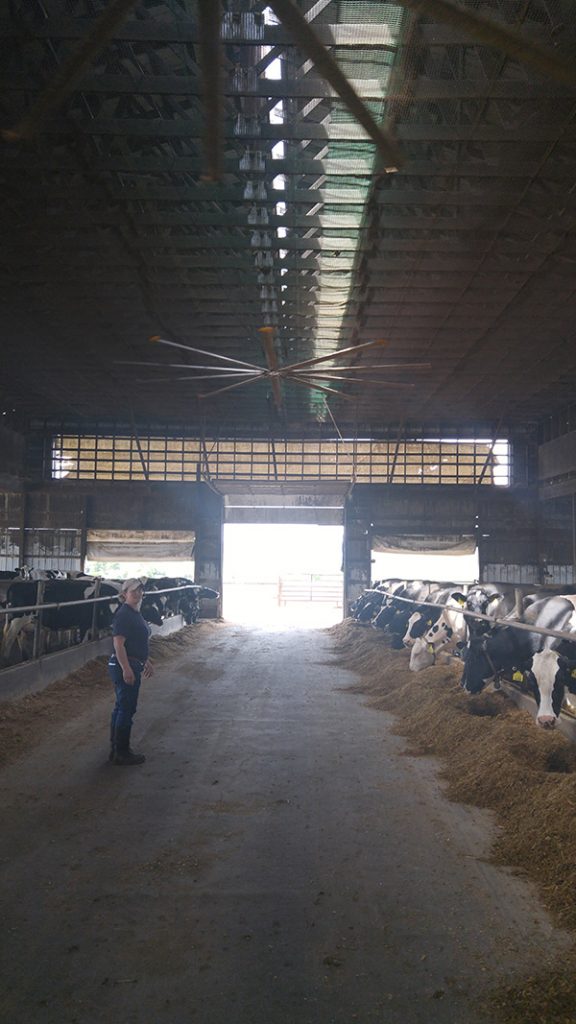
“Airflow,” is Betsy’s main concern, she added. “Every fan is going. The cows are kept in open-sided free stall barns with sand for bedding. The sand stays pretty cool for them also.”
At Brigeen Farms, the cows also wear collars that transmit information about their rumination (chewing their cud) and activity (how much they walk around, go to the water tanks) to a computer. Farmers can check in at any time and make sure everyone is all right. When a cow isn’t feeling well, the earliest sign is that she isn’t chewing her cud or lying down too much.
“We keep track of that all the time anyway. When it’s really hot and humid, we are that much more vigilant, so we can catch anything early. If a cow seems to be suffering heat stress, the first response is to give her fluids.” she said.
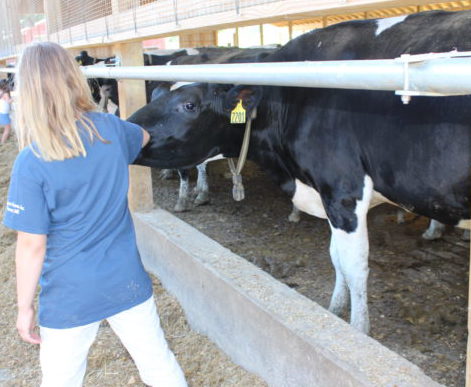
Another indication that cows are stressed from the heat is a drop in milk production. A minimal drop means that despite hot, humid weather, the cows are doing pretty well. At the Harris Farm in Dayton, cows are out on pasture every day, where it’s a little more difficult to control the elements.
Like most pasture-based dairy farms in Maine, they are surrounded by woodlands. Their pastures are well-shaded. Water is always nearby.
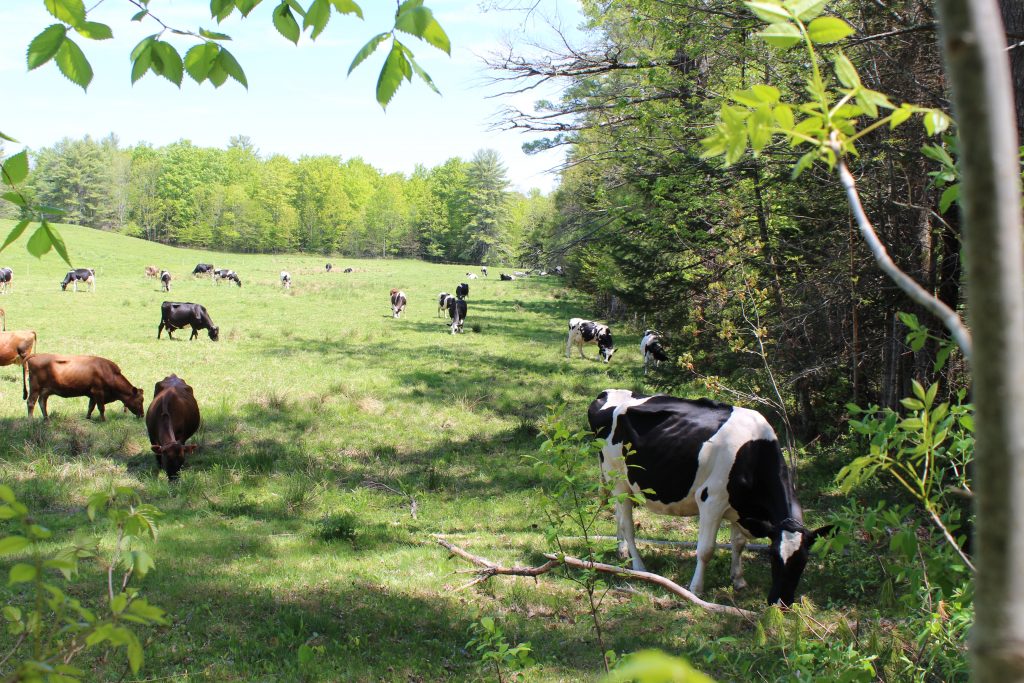
“We try to let the cows out during the early part of the day,” Jake added. “When it starts to get hot, we bring them into the barn, where it’s much cooler with fans on them and water available for them at all times. In extreme heat, we may even keep them in all day and let them graze at night when it is much cooler.”
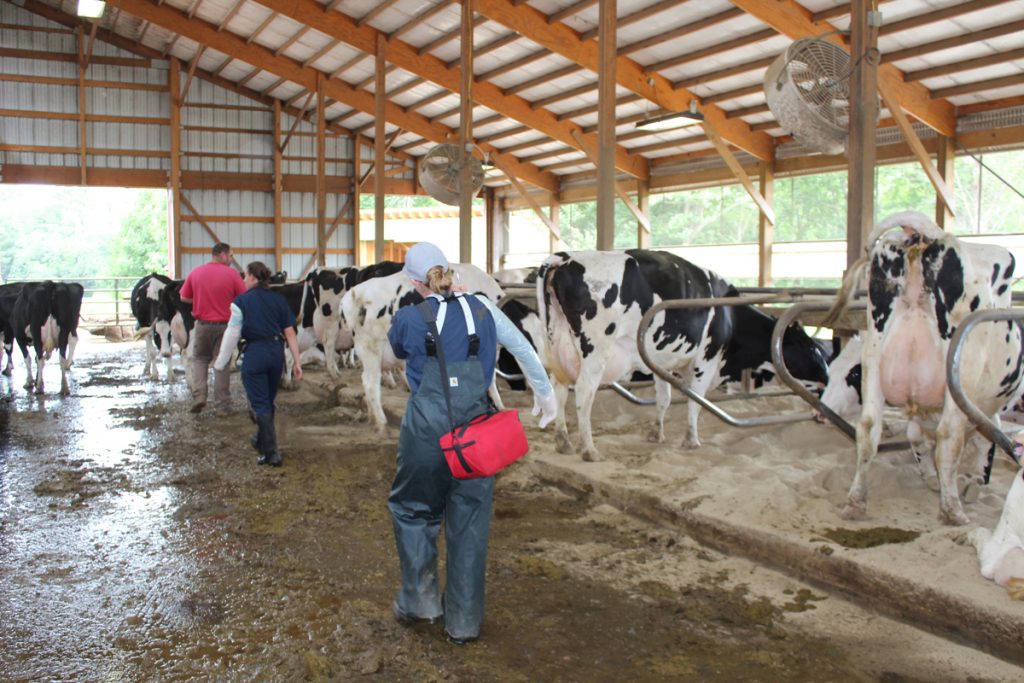
She and fellow veterinarian Jana Zwetsloot (rear), along with dairy farmer Adam Trundy, move easily around the cows during a recent herd check. Flanagan said farmers reschedule things like vaccinations during the heat to keep stress and unnecessary movement to a minimum. Dairy farmers work closely with their veterinarians.
They visit most dairy farms once a week or every other week for simple routine health checkups and ultrasounds to see if cows are pregnant. They can also take the time to check on any cows about which the farmer might have a concern. Cows are oblivious to all the work that goes into keeping them healthy and comfortable, but all that effort is not in vain because healthy, happy cows make delicious, nutritious milk.



